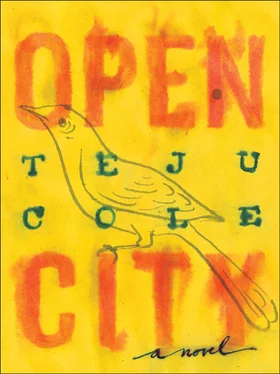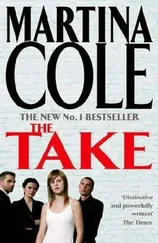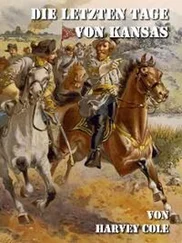The traffic on Sixth Avenue, with its rush-hour gladiators testing each other’s limits, contrasted violently with where I had just been. The rain had begun again, now like a great torrent of mirrors sweeping down the sheer sides of the glass buildings; it took me some time to find a cab. When I finally hailed one, a woman suddenly stepped in front of me and said she was in a hurry and would I mind letting her take it? Yes, I said, almost shouting (the sound of my own voice surprised me), I would mind. I had been standing in the rain for ten minutes and wasn’t inclined to chivalry. I got in the car and immediately the driver said, Where? I must have looked lost. I tried to remember my home address. My folded umbrella pooled its water on the mat, and I thought of Brewster’s portrait of the deaf teenager Sarah Prince at the pianoforte, an instrument that neither artist nor sitter would have heard: the quietest piano in the world. I imagined her running her hand along the keys but refusing to press down on them. When my address filtered its way back to me, I gave it to the cabdriver and said to him: So, how are you doing, my brother? The driver stiffened and looked at me in the mirror.
Not good, not good at all, you know, the way you came into my car without saying hello, that was bad. Hey, I’m African just like you, why you do this? He kept me in his sights in the mirror. I was confused. I said, I’m so sorry about it, my mind was elsewhere, don’t be offended, ehn, my brother, how are you doing? He said nothing, and faced the road. I wasn’t sorry at all. I was in no mood for people who tried to lay claims on me. The cab was silent, and as we drove north along the Hudson on the West Side, the river and the sky were a single darkly misted sheet and the horizon had vanished. We came off the highway, and were stuck in traffic at Broadway and Ninety-seventh Street. The driver switched on a talk-radio show: people arguing loudly about things I didn’t care about. Anger had welled up within me, unhinging me, the anger of a shattered repose. The traffic finally eased, but the radio continued to blare inanities. The driver took me to the wrong address, several blocks from my apartment. I asked him to correct the error, but he idled the car, switched off the meter, and said, No, that’s it. I paid him, adding the standard tip, and walked home in the rain.
The following day, returning to Sheep Meadow, on a circuitous route to a poetry reading at the Ninety-second Street Y, I noticed the masses of leaves dying off in bright colors, and heard the white-throated sparrows within them calling out and listening. It had rained earlier, and the fragmented, light-filled clouds worked off each other; maples and elms stood with their boughs still. Above a boxwood hedge, the swarm of hovering bees reminded me of certain Yoruba epithets for Olodumare, the supreme deity: he who turns blood into children, who sits in the sky like a cloud of bees.
The rain had kept many people from their usual after-work sports, and the park was almost empty. In a cove formed by two large rocks, I went and sat, as though led by an invisible hand, on a pile of gravel. I stretched out and laid my head against one of the rocks, placing my cheek on its damp, rough surface. I must have cut an absurd figure to someone looking on from a distance. The bees over the boxwood lifted as a single cloud and vanished into a tree. After a few minutes, my breath returned to normal and the bellowing in my ribs ceased. I got up slowly, and attempted to clean my clothes, brushing bits of grass and dirt away from my trousers and sweater, rubbing earth stains out of my palms. The sky was now at its last light, and a trickle of blue, seen through the buildings to the west, was all that leaked through.
I sensed a shift in the city’s distant commotion; day’s end: people heading home or beginning the night shift, preparations for dinner in thousands of restaurant kitchens, and the soft yellow lights that were now glimmering from apartment windows. I hurried out of the park, across Fifth Avenue, Madison, Park, then north on Lexington, to the lecture hall where, when once we were settled in our seats, the poet was introduced. He was Polish, dressed in brown and gray clothes, and though he was relatively young, his hair was a brilliant white halo. He approached the lectern to applause, and said: I don’t want to talk about poetry tonight. I want to talk about persecution, if you will permit a poet this license. What can we understand about the roots of persecution, particularly when the target of this persecution is a tribe or race or cultural group? I will begin with a story. His English was fluent, but the thick accent, and the elongated vowels and thickly rolled r ’s, gave it a halting quality, as though he were translating each line in his mind before speaking. He looked up at the full room, looking out at everyone and at no one in particular, and the lights bounced off his glasses, making it appear as though he had a large white patch over each eye.
LATER THAT WEEK, AT THE END OF A DIFFICULT DAY AT THE INPATIENT unit, a day on which I was oversensitive to the hospital’s white lights and felt more irritated than usual with the paperwork and small talk, a reprise of the heavy mood, now more sustained, settled on me. Psychiatry training programs are reputed to be less brutal than some other residency programs — and I had found it so — but the work has its own peculiar challenges. At times, psychiatrists feel the absence of the neat solutions surgeons or pathologists enjoy, and it can be wearying to always have to find the mental preparation, the emotional focus, that is necessary for sitting with patients. The only thing, when I thought it all through, that enlivened the long hours I spent on call or in the office was the trust those patients had in me, their helplessness, their hope that I could help them get better.
In any case, unlike when I had first begun work in the hospital, I no longer spent much time thinking about patients, usually not until the next appointment, and often, when I was on rounds, I needed the chart to recall even the basics of a particular case. That I thought of M. away from the medical campus was, in that sense, an exception; he was, like V., the rare patient whose problems were not relegated to the back of my mind when I stepped out onto the street. M. was thirty-two, recently divorced, and delusional. On bad weeks, the medication seemed to hardly help at all.
A hint of winter was in the air as I began to cross Broadway and was held for a moment in the yellow eyes of the cars hunched in serried ranks at the red light. It was just past five o’clock and night was falling fast. The buildings of the medical complex stood shoulder to shoulder against the charcoal-colored sky and, all around me, people wore padded jackets and knitted hats. I entered the subway at 168th Street and caught a packed southbound 1 train. So absorbed was I in rehearsing that afternoon’s consultation with M. that, when the train reached 116th Street, I simply watched the doors open, stay open, and close. The car moved on past my stop, and momentarily I tried to figure out what had happened. I hadn’t been asleep. My staying on, I finally decided, was intentional, if not conscious. This was confirmed at the next stop, when again I failed to exit and instead sat there, with the feeling that I was watching myself, waiting to see what would happen next. Everyone in the car seemed to be wearing black or dark gray. One woman, unusually tall, more than six feet, wore a black jacket over a long, black, pleated skirt and knee-length black boots, and the play of depth in these layers of her clothing brought to my memory the virtuoso black-on-black passages in certain paintings by Velázquez. Her pale, pinched face was overwhelmed, nearly, by the black of the clothes. No one on the train spoke and no one, it seemed, knew anyone else. It was as though we were all listening closely to the rattle of the train on the tracks. The lights were dim. I knew then that I was no longer heading directly home.
Читать дальше












